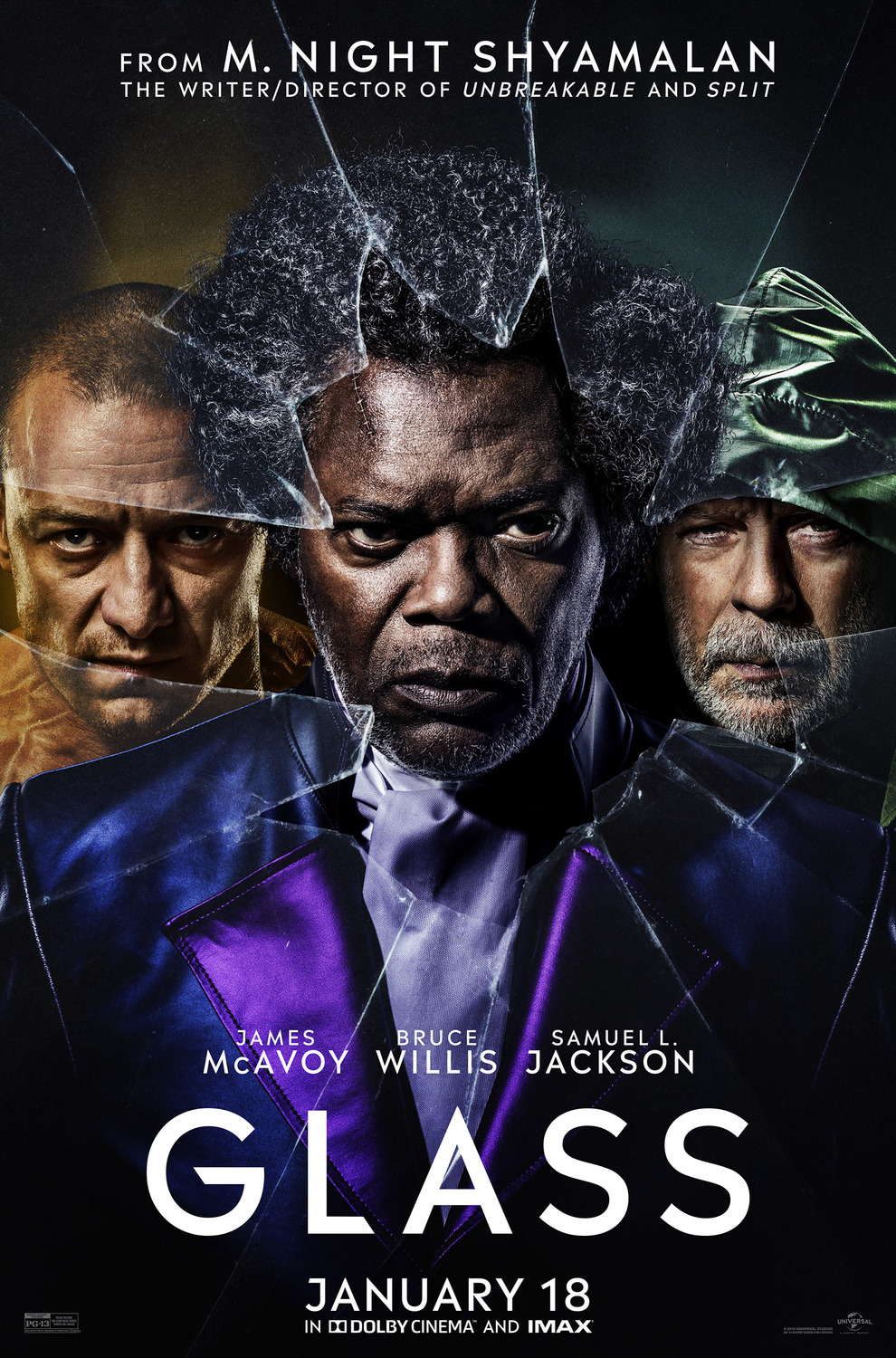The problem with being the guy behind The Sixth Sense is… well— being the guy behind The Sixth Sense. Audiences have spent the last 20 years hoping writer-director M. Night Shyamalan could offer something as good as his 1999 juggernaut, but it hasn’t happened yet. His immediate follow-up, 2000’s Unbreakable, almost did the trick, but we’ve also gotten The Last Airbender, almost certainly the worst film of 2010. And scattered around them were the poor-to-mediocre Signs, The Happening, and The Village. Lately, 2015’s The Visit and 2017’s Split proved a welcome return to form for Shyamalan, and though they didn’t quite measure up, they were among the better reasons to hit the cineplex in their respective years.
Now comes Glass, the sequel to Split, which itself was a surprise sequel to Unbreakable, to complete the so-called Eastrail 177 Trilogy. (A word of warning: If haven’t seen one or both prior films, don’t bother with Glass; Shyamalan jumps right in without any backstory, recap, or refresher.) Picking up immediately after the events of Split, Glass joins the world of the two prequels by having Unbreakable’s David “The Overseer” Dunn (Bruce Willis) take it on himself to track down Kevin Wendell “The Horde” Crumb (James McAvoy), the 24-personality, dissociative identity disorder patient who wreaked havoc in Split. When Dunn finally catches up with Crumb, both get arrested by the police and are locked up at the local psychiatric hospital under the care of Dr. Ellie Staple (Sarah Paulson).
Staple is an expert on patients considering themselves superheroes and is already treating Elijah “Mr. Glass” Price (Samuel L. Jackson). The more she tries to convince all three patients that they do not have super powers and may, in fact, have been brainwashed by a comic book culture, the more clear it becomes that we’re headed for an inevitable grand finale showdown. Shyamalan, in fact, teases it throughout the movie with not-too-subtle background news reports that tout the opening of Philadelphia’s newest skyscraper; Mr. Glass, it turns out, has picked the event as the setting for the big “good vs. evil” showdown between The Overseer and The Horde.
The fact that it never materializes and is instead replaced with another of Shyamalan’s last-second twists should come as a surprise to no one, but it’s also the last straw in a decent-sized line of issues that keeps the movie from landing with the impact it should. Chief among Glass’s shortcomings is the startling lack of action and suspense, especially for the final leg of a trilogy that had teemed with both to date. There were moments that Split was downright terrifying, and Unbreakable’s slow burn was generously peppered with creepy, intense moments that kept the train rolling down the tracks (pun intended). Instead Glass affords us with a lot of talking (most of which is Staple-droned psychobabble), and though McAvoy’s electric performance is even more admirable than his work in Split, Willis and Jackson seem to be catatonic throughout (in Jackson’s case, his Mr. Glass actually is).
Among the plusses (along with McAvoy) are the clever and interesting camera work by cinematographer Michael Gioulakis and a scene-stealing performance from Anna Taylor-Joy, who reprises her role as Casey from Split, but neither is enough to make Glass as good as it could (and, frankly, should) have been. No, thankfully, it’s no Signs, but it still leaves Shyamalan on the hunt for his elusive Woozle, anything that might be able to equal the talents he first flashed 20 years ago.
Rating
3/5 stars
